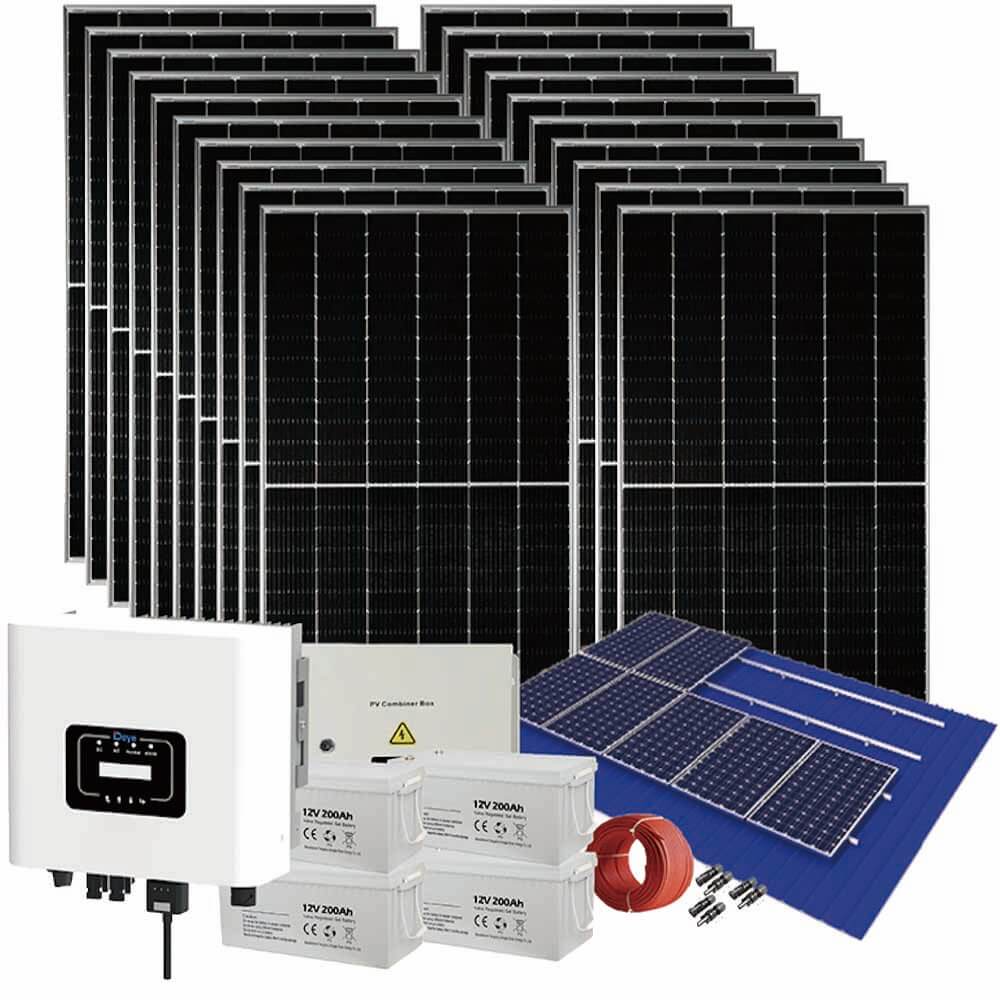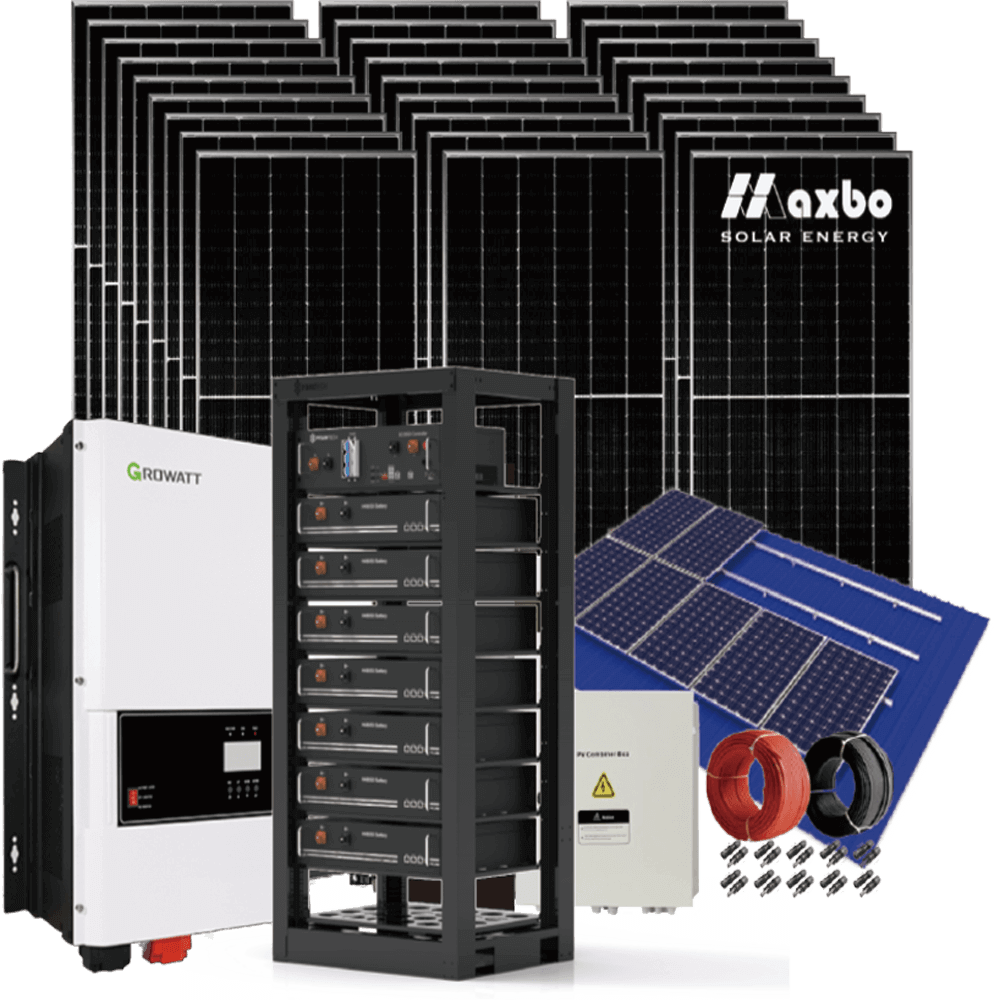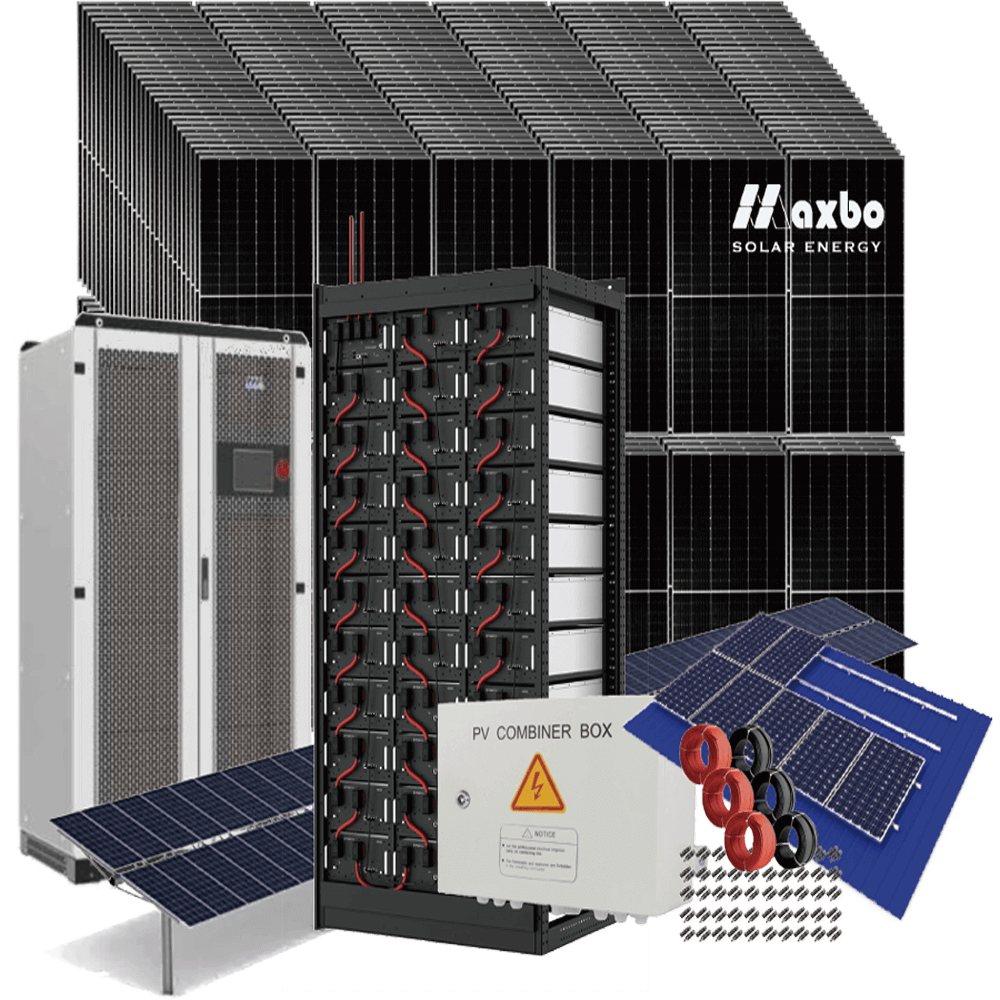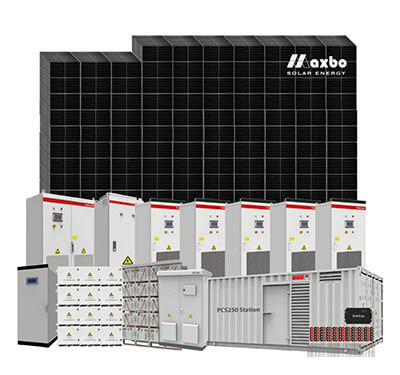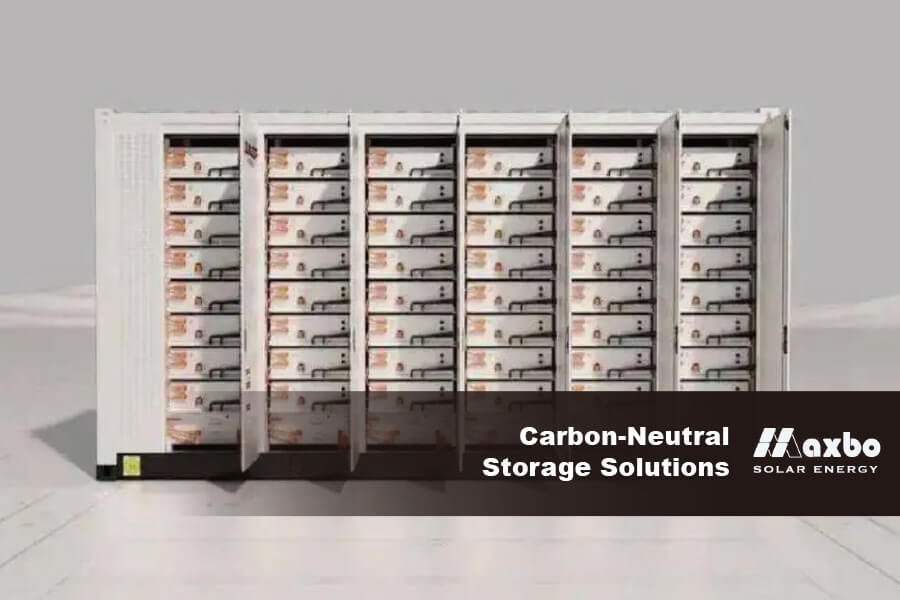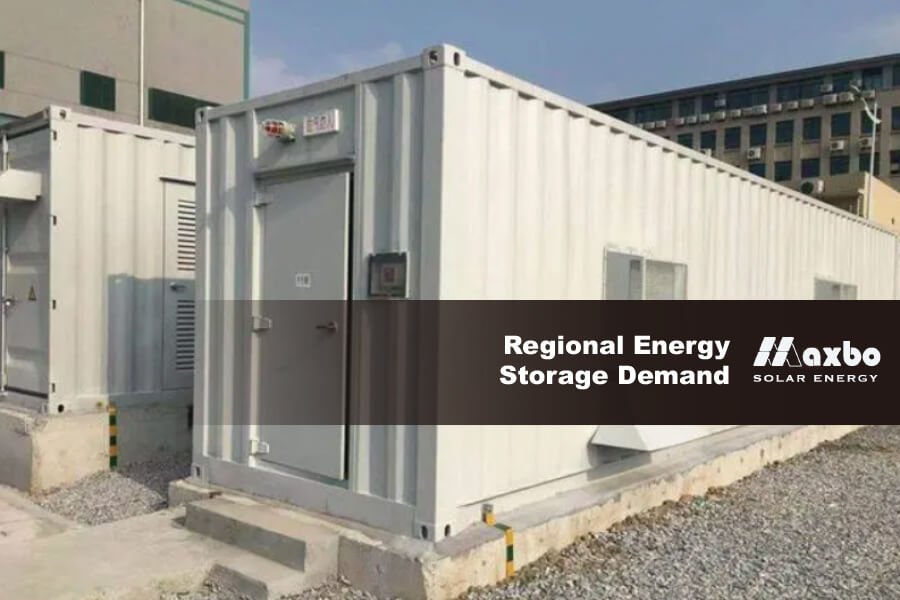Introduction
Solar energy is transforming the European energy landscape, and Types of Solar Energy Storage Systems play a crucial role in this shift. With solar adoption on the rise, efficient energy storage has become essential for capturing, storing, and using solar power effectively. At Maxbo, we specialize in providing a variety of solar energy storage solutions that cater to the diverse needs of European industries, commercial facilities, and residential clients. Our solutions are designed to maximize the utility of solar power, reduce reliance on the grid, and support sustainability goals.
Understanding the different Types of Solar Energy Storage Systems available will help you make an informed choice that suits your unique requirements. From Battery Energy Storage Systems (BESS) to advanced hydrogen and flywheel storage options, Maxbo offers scalable and flexible solutions for all your solar energy needs.
Table of Contents
ToggleTypes of Solar Energy Storage Systems
Battery Energy Storage Systems (BESS)
Battery Energy Storage Systems (BESS) are one of the most popular types of solar energy storage systems. These systems use lithium-ion, LiFePO4, and other advanced battery chemistries to store solar power for use during low-sunlight hours. BESS units are versatile, providing reliable energy for residential, commercial, and industrial applications. At Maxbo, our BESS solutions are modular and containerized, enabling easy deployment and scalability. This makes them particularly useful for peak shaving, demand response, and backup power.
Europe’s variable climate makes BESS an ideal choice for solar energy storage. By storing solar power during high-production periods, BESS systems allow users to access stored energy when needed. With Maxbo’s BESS solutions, businesses can reduce their dependency on grid power and minimize operational costs. Whether for daily energy needs or emergency backup, BESS provides a resilient, dependable storage solution that aligns with Europe’s renewable energy goals.
Flywheel Energy Storage Systems
Flywheel energy storage is an innovative type of solar energy storage system that uses kinetic energy to store power. Flywheel systems charge by spinning a rotor, which can discharge energy almost instantaneously when needed. Although they have higher maintenance costs, flywheels are known for their high efficiency and long operational life. Maxbo’s flywheel storage solutions integrate seamlessly with solar installations to manage energy fluctuations effectively.
Flywheel storage is particularly valuable in areas with frequent changes in solar production. For example, in Northern Europe, where solar energy generation can be inconsistent due to cloud cover and seasonal variation, flywheel systems stabilize solar output, supporting grid reliability. As one of the most responsive types of solar energy storage systems, flywheels provide rapid discharge capabilities, making them an excellent complement to solar energy.
Supercapacitor Energy Storage Systems
Supercapacitors, also known as ultracapacitors, are another type of solar energy storage system with unique benefits. Unlike batteries, supercapacitors can handle millions of charge and discharge cycles, making them ideal for applications requiring frequent, short-term energy storage. Maxbo’s supercapacitor systems are designed to work alongside solar energy installations, providing rapid response to energy demands.
For European solar projects, supercapacitors help stabilize power output, ensuring that energy delivery remains consistent despite intermittent solar production. These systems are especially useful for voltage regulation and power smoothing in solar installations. Supercapacitors are fast, efficient, and ideal for industrial environments that rely on stable power. They are a practical option for clients seeking reliable, quick-access solar energy storage.
Superconducting Magnetic Energy Storage (SMES)
Superconducting Magnetic Energy Storage (SMES) is one of the most advanced types of solar energy storage systems. SMES units store energy as a magnetic field within superconducting coils, allowing for nearly instant energy release. Known for their high efficiency and rapid discharge rates, SMES systems are ideal for applications that require immediate power output.
Maxbo’s SMES solutions offer advanced voltage regulation and frequency control, making them suitable for grid stabilization. In Europe, where the grid relies increasingly on solar energy, SMES supports power balancing, helping utilities and industries respond to sudden changes in energy supply. With high discharge speeds, SMES is one of the most efficient types of solar energy storage systems for demanding energy management applications.
Hydrogen Energy Storage Systems
Hydrogen energy storage is an emerging solution that provides a sustainable way to store excess solar energy. Using electrolysis, hydrogen systems convert solar power into hydrogen gas, which can then be stored and later converted back to electricity as needed. Hydrogen storage offers a long-duration storage option, complementing other types of solar energy storage systems by providing seasonal energy storage capabilities.
Maxbo is exploring the integration of hydrogen storage to meet the long-term energy needs of our European clients. In regions with significant seasonal solar variations, such as southern Europe, hydrogen storage enables the capture and use of solar energy over extended periods. As Europe aims to reduce its carbon footprint and increase energy independence, hydrogen storage represents a forward-thinking approach to renewable energy storage
.
Advantages of Containerized Solar Energy Storage Systems
Flexibility and Mobility
Containerized solar energy storage systems are among the most versatile types of solar energy storage systems. These units are pre-installed with batteries, inverters, and control systems within a durable container, allowing for easy transport and deployment. At Maxbo, our containerized solutions are modular and scalable, designed to meet the demands of European clients in diverse industries.
Our containerized systems provide flexibility for solar installations, whether for temporary power needs, emergency backup, or long-term infrastructure projects. This adaptability makes containerized storage ideal for applications that may require relocation or rapid expansion. By choosing containerized solutions from Maxbo, clients gain a modular, flexible solution that grows with their energy needs
.
Supporting Grid Stability and Security
In Europe, where solar power contributes significantly to the energy mix, grid stability is essential. Containerized solar energy storage systems provide reliable backup power, ensuring that solar installations can deliver energy even during grid interruptions. Maxbo’s containerized systems are equipped with advanced monitoring and control features, allowing for real-time adjustments to energy usage.
By supporting solar energy integration, containerized storage enhances grid resilience and reduces the risk of outages. This capability is crucial for utilities and industries that depend on continuous power supply. As one of the most dependable types of solar energy storage systems, containerized storage allows businesses to achieve energy independence and protect against unexpected power disruptions.
Cost-Efficiency and Energy Management
Maxbo’s containerized solutions also offer cost-saving benefits. By using stored solar energy during peak demand periods, businesses can avoid high utility rates, reduce demand charges, and optimize energy consumption. Containerized solar energy storage systems provide the functionality needed for precise energy management, including peak shaving and load shifting.
With Maxbo’s advanced control systems, our clients gain valuable insights into their energy usage patterns, enabling them to make informed decisions that maximize solar energy efficiency. In commercial and industrial applications, these systems reduce operational costs and support sustainable energy management, making containerized solutions one of the most effective types of solar energy storage systems for cost optimization.
Future Trends in Solar Energy Storage
Hybrid Energy Storage Systems
Hybrid energy storage systems are becoming increasingly popular as they combine multiple types of solar energy storage systems to create a more comprehensive solution. Hybrid systems integrate various technologies, such as battery storage and hydrogen storage, to provide both short-term and long-term energy storage capabilities. By combining the rapid response of batteries with the extended storage of hydrogen, hybrid systems offer a balanced approach to solar energy storage.
Maxbo is at the forefront of hybrid storage technology, offering solutions that support diverse energy applications. As European businesses seek to enhance their renewable energy strategies, hybrid systems provide a robust option for optimizing solar energy use while maintaining flexibility and reliability.
AI and Digital Integration
AI-driven energy management is revolutionizing the way types of solar energy storage systems interact with solar panels and the grid. By incorporating AI technology, Maxbo’s systems can analyze data from weather forecasts, energy demand patterns, and grid conditions to optimize storage and usage. This enables clients to better anticipate energy needs, ensuring efficient use of solar power and supporting grid balance.
Incorporating AI allows for smart control of solar energy storage, reducing energy waste and enhancing system longevity. This trend aligns with Europe’s push toward digitalization and the development of a smart grid, ensuring that solar energy storage remains an integral part of the continent’s energy future.
Conclusion
Exploring the Types of Solar Energy Storage Systems available is essential for maximizing solar energy use and achieving energy independence. At Maxbo, we offer a comprehensive range of storage solutions, from containerized systems to advanced hydrogen and SMES technologies. Our products are designed to meet the unique demands of European clients, providing flexible, reliable, and efficient solar energy storage options that enhance grid stability and support sustainable growth.
To learn more about Maxbo’s solar energy storage solutions, visit Maxbo Solar and discover how we can help you harness the power of solar energy and optimize your energy management strategy. Types of Solar Energy Storage Systems Types of Solar Energy Storage Systems
References
- Maxbo Solar. (2024). Energy Storage System: 2x Improved Efficiency and Capacity. Retrieved from https://maxbo-solar.com
- Maxbo Solar. (2023). 4 Energy Storage Technologies in Photovoltaic Power Generation. Retrieved from https://maxbo-solar.com
- International Renewable Energy Agency (IRENA). (2022). Battery Storage for Renewables: Market Status and Technology Outlook. Retrieved from IRENA
- U.S. Department of Energy (DOE). (2023). Energy Storage: A Key Technology for Decarbonizing the Power Grid. Retrieved from DOE
- CleanTechnica. (2023). Emerging Trends in Solar Energy Storage. Retrieved from CleanTechnica
- Energy Storage News. (2023). Exploring the Potential of Hybrid Energy Storage Solutions. Retrieved from Energy Storage News
- ScienceDirect. (2022). Integration of Energy Storage Systems with Renewable Energy Sources. Retrieved from ScienceDirect
Related Solutions
Related Blogs
Grid-Forming BESS Container Europe: Crushing NC RfG 2.0 & Keeping Europe’s Lights (and Espresso Machines) On
行政2025-12-19T14:07:50+08:00December 18th, 2025|Categories: Design, News|
Electric Vessel Charging BESS Container Europe: The Grid-Saving Hero Powering Zero-Emission Maritime
行政2025-12-19T14:09:32+08:00December 18th, 2025|Categories: Design, News|
Let’s Make Things Happen
Add notice about your Privacy Policy here.
Let’s Make Things Happen
”The Maxbo team of sales consultants will continue to enrich our own expertise and experience to empower the development of sustainable energy with rigor.“
Maxbo CEO
You will need to provide: 1. the amount of electricity used. 2. the type and power of the load. 3. the electricity consumption habits (daytime/nighttime consumption). 4. the need to store electricity. 5. the need to feed electricity to the mains. 6. drawings or address of the installation site. 7. other special requirements
We can provide you with a quotation, a specification for all products, a circuit connection diagram and a diagram of the installation and placement of the PV panels. Any other requirements and adjustments needed can be discussed with our team.
We can meet the needs of most scenarios, whether your application is for domestic, commercial and industrial use, in remote areas, or for grid-level energy storage, we have experienced colleagues to design and deliver the right solution.
Add notice about your Privacy Policy here.
How much solar power do I need?
Most homes need 5–12kW, depending on your energy use and location.
Off-grid vs. grid-tied — what’s the difference?
Off-grid works without the utility grid; grid-tied lets you sell extra power back.
Do I need permits?
Usually yes — check local rules or ask us for guidance.
How long does a battery last?
Depends on size and load. A 5kWh battery can power a fridge for about 40 hours.
Can I upgrade my system later?
Yes, our systems are modular and easy to expand.
Does Maxbo offer installation?
We ship globally and connect customers with trusted local installers.





